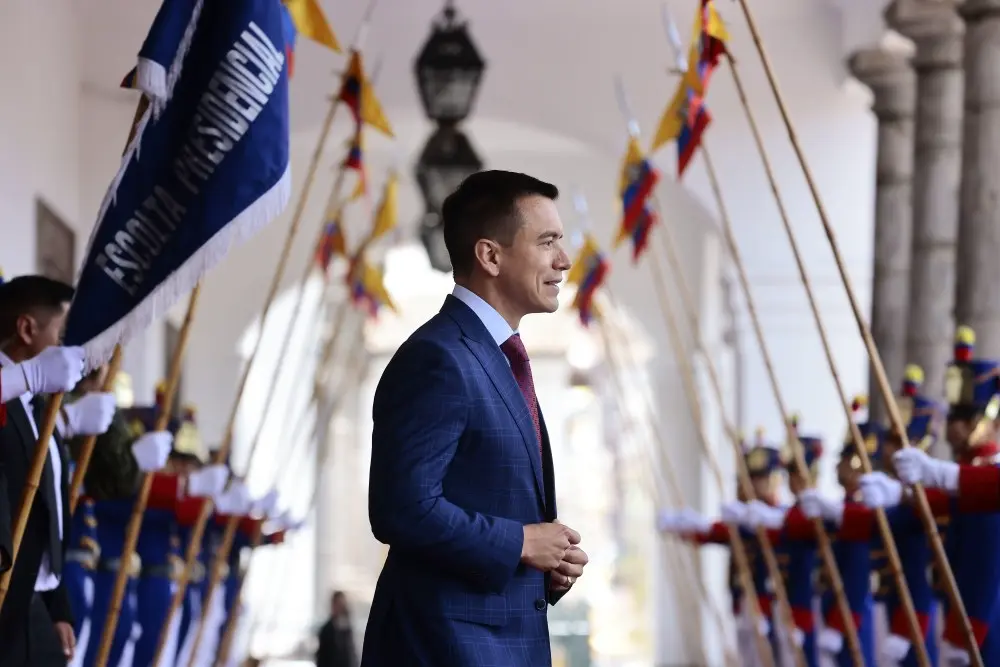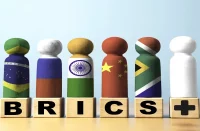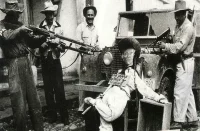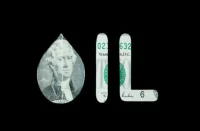The entire world saw an unprecedented challenge to authority by drug lords in Ecuador when, on January 8, 2024, unmarked armed men stormed the building of TC Televisión and took all the civilians on the set hostage on live television. Responding to this action by the drug lords, the country’s newly appointed President, then in office for just over two months, 36-year-old Daniel Noboa, declared a 60-day curfew in the country and the imposition of an “internal armed conflict” regime throughout Ecuador. It is hard to say how well thought out both steps were, given the socio-demographic structure of the country’s population and the President’s past, as discussed below, but that is the point: the decision provoked a surge of resentment among the criminal gangs for which Ecuador is so widely known.
Essentially, an organized war of criminals and drug cartels against the government has begun. There have been bombings in public places, riots in prisons, and several clashes with law enforcement authorities that have involved minors. El Pais wrote that the country was plunged into panic and despair. Many people uninvolved in the confrontation tended to close stores and restaurants and go home, waiting for the conflict to be resolved. But the conflict was dragging on. Against this backdrop, on January 10, Noboa announced that Ecuador is “in a state of war with terrorist groups.” The statement is very resonant, but the success of the authorities’ actions is highly questionable. Will the President and his father have enough resources to contain the opponents of the Noboa family rather than the government? That’s the key question.
And here it is worth saying a word or two about the President of this Latin American country. The 36-year-old Miami native became President at the encouragement of his father, banana tycoon Álvaro Noboa, who ran for President of Ecuador 5 times but failed to win popular support. Daniel Noboa is hailed as the heir to the family business and his father’s fortune. It’s easy to guess whose interests in politics he represents. The recent announcement regarding the transfer of old Russian military equipment to the US should finally dispel all existing doubts. In Ecuadorian politics and business, the son is clearing the way for the elder Noboa by eliminating competitors, which is logically disliked by the drug lords. Here is the conflict of interest within the country. Noboa’s family was reminded that they were not alone at this feast of life.

The delicate balance that existed while the usual proxies of various clans were in politics was broken with the arrival of Daniel Noboa to the top administrative post. The combination of a sophisticated criminal underworld and the current imbalance of power has created an unprecedented level of crime in the country, although it is now officially lower than in Peru or Venezuela. As a result, Ecuador has become a hotspot for global drug trafficking and all those groups that wish to control these flows and the profits they bring. It is what has led to a surge in drug cartels, concomitant murder and carnage, prison riots, and an unprecedented increase in violent deaths (in 2023 their number has doubled compared to the previous year).
In January 2024, drug lords arranged the escape of two of their most notorious associates from Ecuadorian prisons: a Los Choneros ringleader, also known by the alias Fito, and a Los Lobos ringleader who was involved in the assassination of presidential candidate Fernando Villavicencio in August 2023. While still in prison, Fito released a music video mocking the authorities’ inability to control the situation in their own correctional facilities. And the authorities did not react to this move in any way. It only served to discredit the federal government in the country.
The drug business, especially when organized as it is in Ecuador, can be compared to a huge cancerous tumor. Reviewing the events of the 21st century, one can come to a natural conclusion: as a rule, in Latin America, nation-states do not have enough resources to fight drug cartels. There is no point in talking about a complete victory over them, for they have launched their tentacles everywhere: in politics, business, and economics. Ecuador is the ideal example. The extent to which local gangs work closely with international drug cartels, from Mexico to Albania, is an example for many international organizations in terms of organizing contacts and building relationships. And Ecuador’s prisons don’t appear to be monitored in any way at all, and the example of the Fito video posted is a case in point. On the contrary, these institutions have served as recruitment centers over recent years.
Ecuador is trying to fight the powerful underground economy that attracts Ecuador’s unemployed youth with its ease of earning and big money. Noboa has been vocal about fighting a war against the drug cartels. But is he capable of leading it even with the help of the army? Drug empires are enormous and have significant financial resources. On the one hand, they may disappear. On the other hand, they may suddenly reappear. They are like dragons from fairy tales: cut off one head, and two new ones will grow in its place. So who’s running Ecuador. Is it Noboa? Since he is forced to reckon with the opinions and actions of the drug cartels, he is obviously not. But will he be able to gain a foothold in power? He has the US behind him, which brought him into power. It is a considerable helping hand. But we will have to rely on our family and people first and foremost. Will the population support the President? Only if the latter demonstrates strength. Drug lords respect nothing but power. Just like the average Latino.














Comments